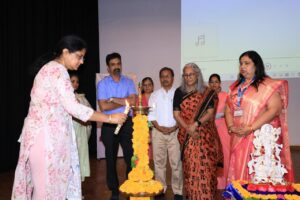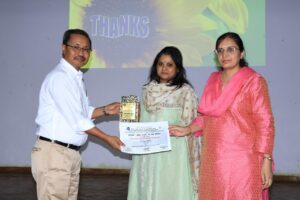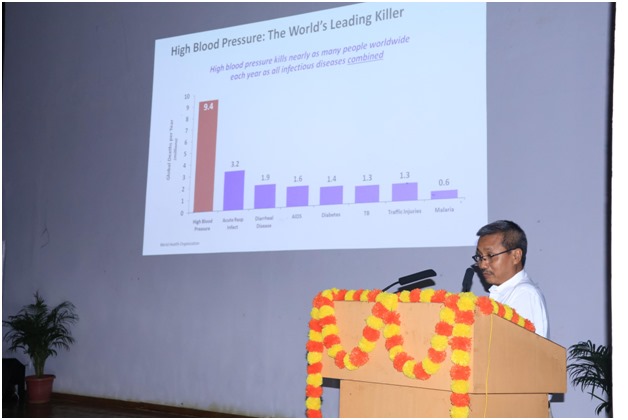CNN Central News & Network–ITDC India Epress/ITDC News Bhopal: Even individuals under the age of 30 are now falling victim to hypertension. The primary cause of this is excessive salt intake in daily diets. Among the total number of hypertension patients in the country, 7% are under 30 years of age. This finding emerged from research conducted across several states by the Government of India and the World Health Organization. Dr. Tapas Chakma, a senior scientist at ICMR-NIRTH (National Institute of Research in Tribal Health), Jabalpur, who has been researching hypertension for the past 30 years, shared this information during a program at Bhopal Memorial Hospital and Research Centre (BMHRC) on the International Day of Action for Women’s Health.

During the event, Dr. Rekha Singh, an additional professor in the Endocrinology Department at AIIMS Bhopal, gave a lecture on women and obesity. Renowned local expert Mrs. Amita Singh spoke on the essential nutrition needed for women’s good health. BMHRC’s Acting Director, Dr. Manisha Srivastava, welcomed all the guests and emphasized that such programs will continue to raise health awareness among the public.

Dr. Tapas Chakma also shared his experience regarding the issue of hypertension among young people. He recounted a visit to Ratlam for his research, where he was shocked to find a 21-year-old girl’s blood pressure reading very high (170/110). After multiple checks with different machines and the same result, he inquired about her diet and found she regularly consumed chips and packaged foods high in salt. This led him to understand how she developed hypertension at such a young age.
Dr. Rekha Singh highlighted that more women suffer from obesity than men and that they are at greater risk from obesity-related issues. Many children are also becoming obese nowadays, and girls who become obese during adolescence are at increased risk of polycystic ovary syndrome and gestational diabetes.
Mrs. Amita Singh advised against consuming tea, coffee, or chocolate one hour before and two hours after meals, as these can prevent the absorption of calcium and iron, leading to anemia and arthritis. Women are particularly susceptible to these conditions and should take special care.
Dr. Chakma provided guidelines for measuring blood pressure accurately, noting that incorrect methods can result in inaccurate readings. Important points include:
Do not talk while measuring blood pressure.
Sit down with your back supported and your arm resting on a table.
Ensure the cuff (belt) is placed correctly on the arm.
These practices are essential for obtaining accurate blood pressure measurements and managing hypertension effectively.







